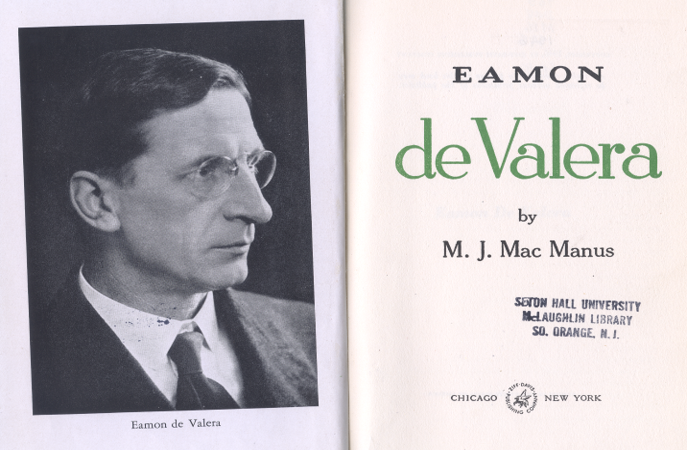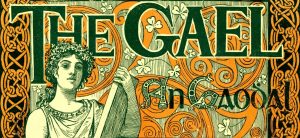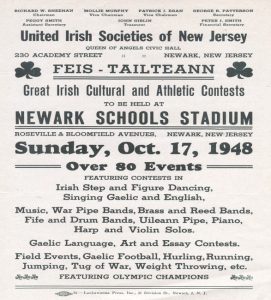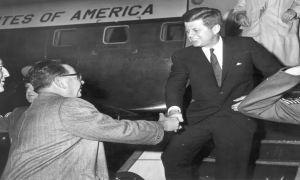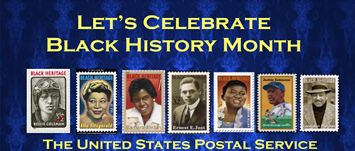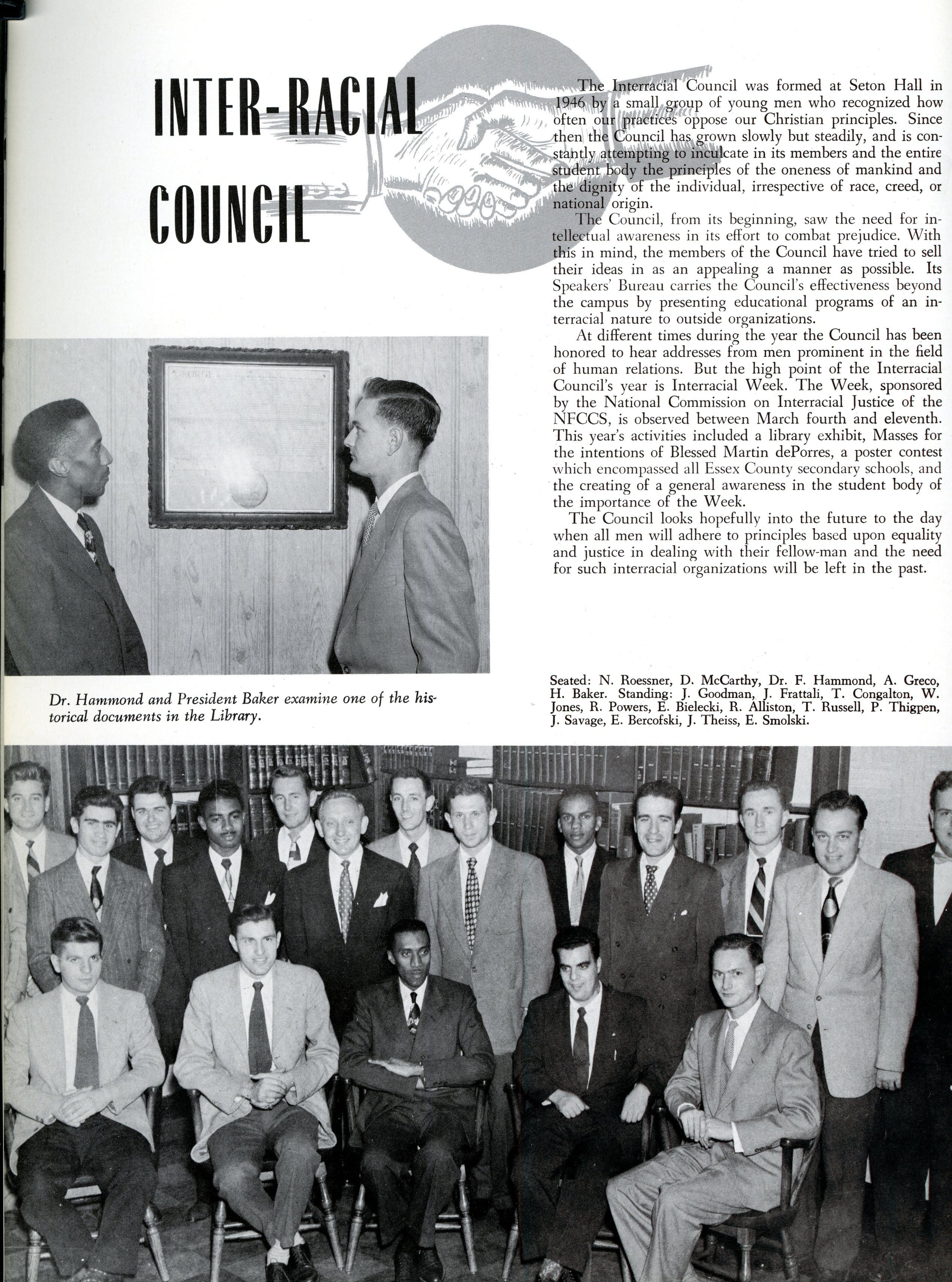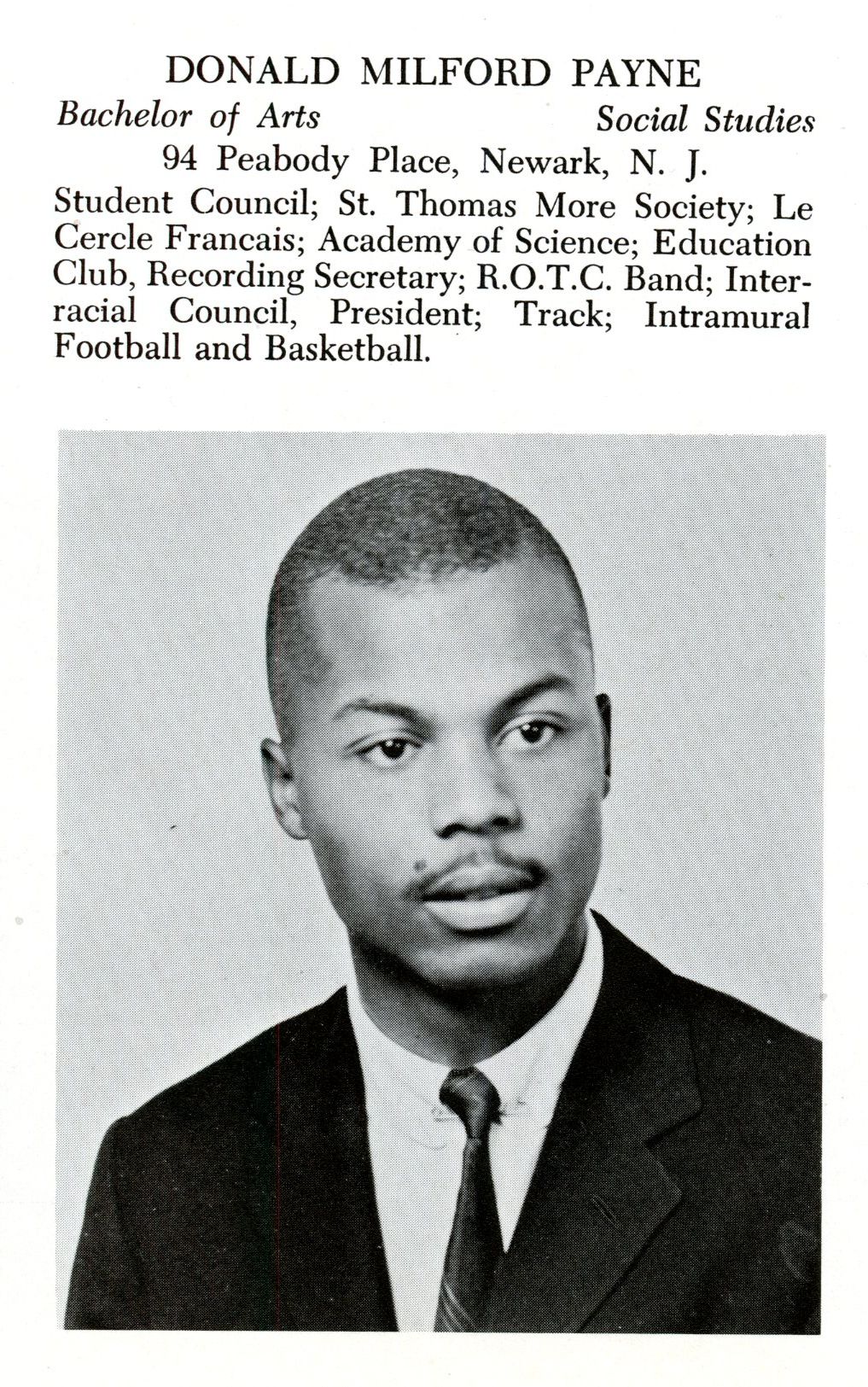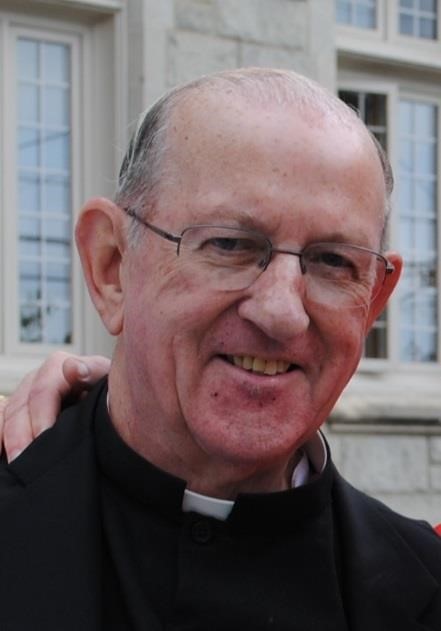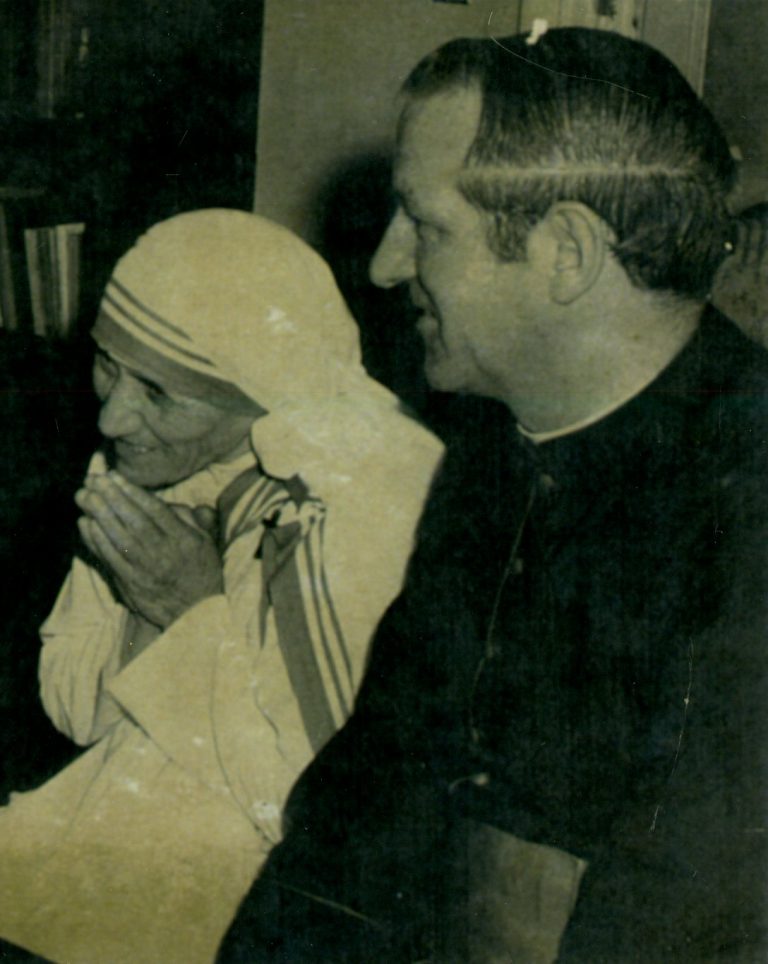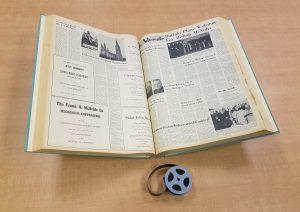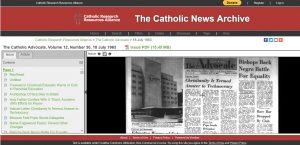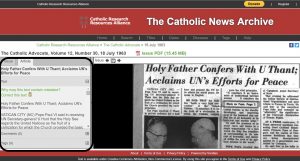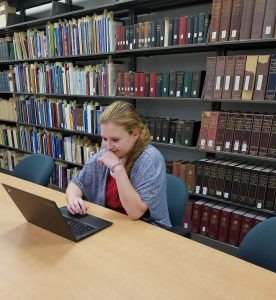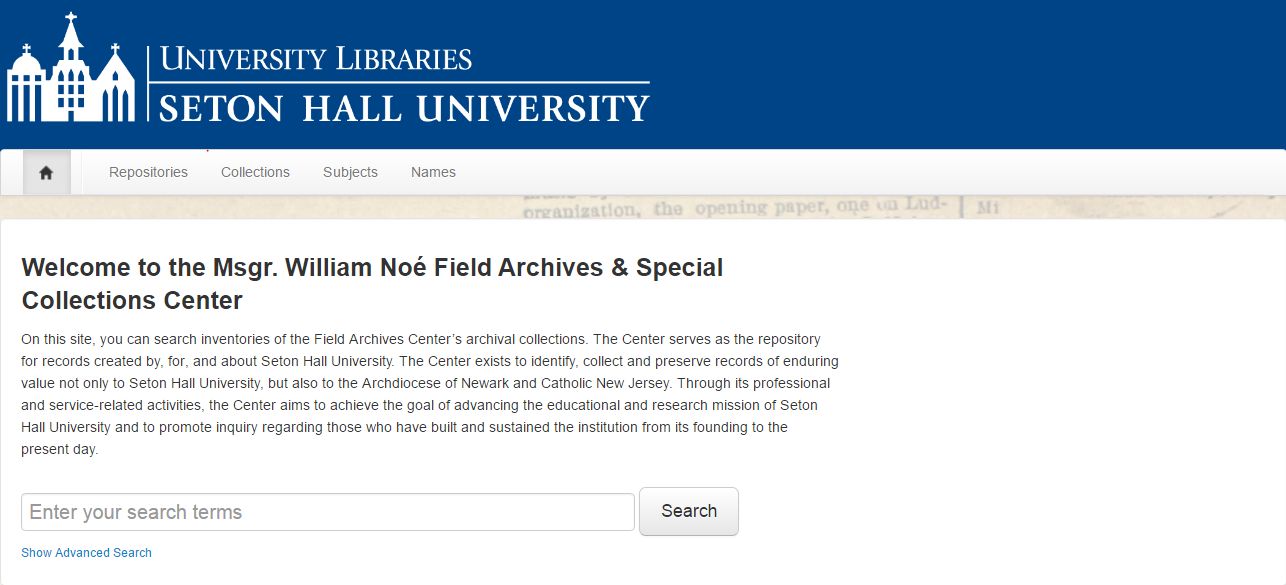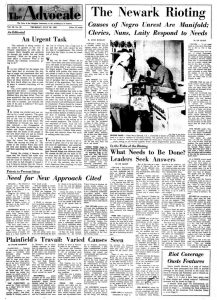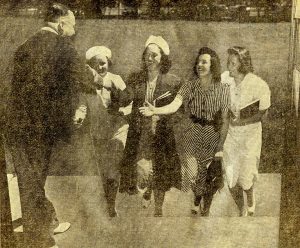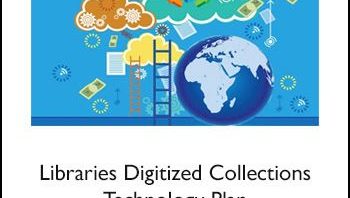In the spirit of the “Mi Voz” initiative developed by the Unanue Institute, the Seton Hall University Hispanic Heritage Committee, and the Seton Hall Archives, we seek to spend this month creating connections, exploring resources, celebrating voices, and opening doors. We are pleased to kick off Hispanic Heritage Month with the first of a series of student guest blog posts written by members of the Seton Hall Latin American, Latina/o/x, and Hispanic community.
The Seton Hall Latin American Law Student Association (LALSA)’s 5th Annual Sangria Social will occur Monday, Sept. 21st 4-6pm via Zoom. Register to attend.
In celebration of Latinx Heritage Month and in commemoration of the centennial of the 19th Amendment’s, LALSA invites current students, alumni, friends, faculty, and allies to Women of Color in Political Movements: Celebrating an Under-Recognized Power 100 Years Later. Join us as we learn from and engage with our distinguished panelists for a discussion about the impact that women of color have made in political movements, the history behind Equal Rights Amendment, and the future of gender equality in politics and beyond.
We are humbled by the opportunity to learn from the following panelists:
- Professor Michael Coenen — Professor of Law at Seton Hall Law, and U.S. Constitutional Law Scholar
- Professor Cathleen D. Cahill — Associate Professor of History at Penn State University
- Kerlyn Espinal — New Jersey Department of Education – Deputy Assistant Commissioner of Cultural and Historic Commissions
- Amelia Adams — Chair of 21 in ‘21 and New York Equity Advocates Advisory Board Member
- Maria Del Cid-Kosso — Director of Legislative Services, Office of the Commissioner, New Jersey Department of Health
- Assemblywoman Maritza Davila — New York State Assembly District 53
Register for the event at this to receive program details and login information.
Who We Are:
The Latin American Law Students Association (LALSA) at Seton Hall University School of Law is a non-profit organization committed to the following goals: Fostering individual achievements; Providing necessary services to the law school community; Addressing legal issues of the minority community.
Our mission is to educate the law school community on the benefits of diversity and create awareness of the challenges that Latino communities currently face.
LALSA achieves its goals by providing academic, professional and social support for all students by recognizing the achievements of Latino students and alumni, so that lessons may be learned, mentorship relationships created, and friendships established among the current LALSA members.
Suggested Readings:
One of our distinguished panelists, Dr. Cathleen D. Cahill, is an author and Professor of History at Penn State University. Her newest publication, Recasting the Vote: How Women of Color Transformed the Suffrage Movement, will be published in November. LALSA is recommending this book for purchase by the SHU Libraries.
If you would like to make your own Latinx/Hispanic Heritage book suggestions this month, you can do so by filling out the Latinx Book Survey.
If you’re interested in learning more, we have also collected the following amazing recommendations from our panelists:
- Borderlands/La Frontera: The New Mestiza by Gloria Anzaldúa (print book)
- From Out of the Shadows : Mexican Women in Twentieth-Century America by Vicki Ruiz (ebook)
- ¡Chicana Power!: Contested Histories of Feminism in the Chicano Movement by Maili Blackwell (print book)
- Reasoning from Race: Feminism, Law, and the Civil Rights Revolution by Serena Mayeri (ebook)
The following are titles SHU Libraries does not yet own. You can Suggest a Latinx Book Purchase or Request a Copy through Interlibrary Loan.
- Growing American Roots: Why Our Nation Will Thrive as Our Largest Minority Flourishes by Sen. Bob Menendez
- American Dreams: Restoring Economic Opportunity for Everyone by Sen. Marco Rubio
- Once I Was You: A Memoir of Love and Hate in a Torn America by Maria Hinojosa
- The Likability Trap: How to Break Free and Succeed as You Are by Alicia Menendez
- Dreaming in Cuban: A Novel by Cristina Garcia
- Agent of Change: Adela Sloss Vento, Mexican American Civil Rights Activist and Texas Feminist forthcoming publication by Cynthia Orozco*
TV Show
One Day At A Time (Available on Netflix) not available for purchase by libraries due to licensing restrictions
Hispanic Heritage Month is September 15th to October 15th. For more information about the Seton Hall University Hispanic Heritage Month events and participants, visit the homepage.

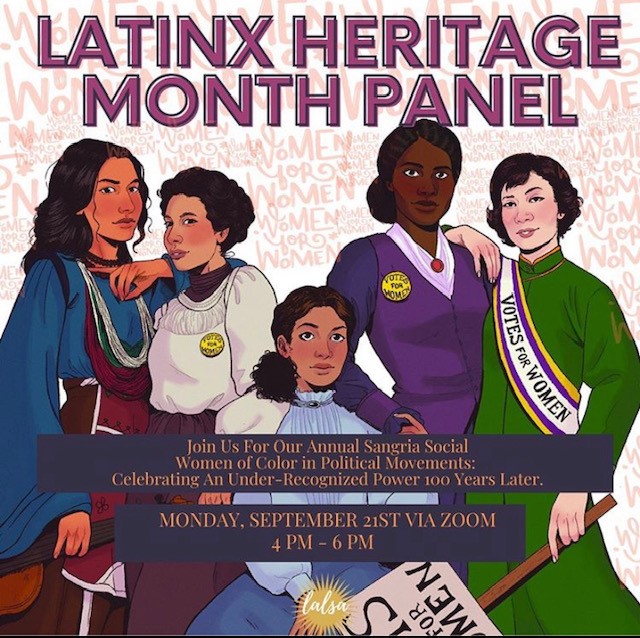

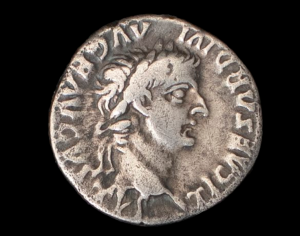
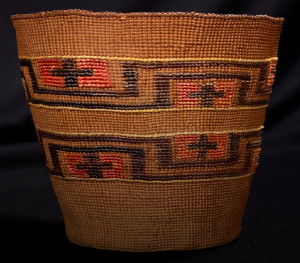 Kraft was an expert in the Lenape tribe of New Jersey, but his collection encompassed materials from Native American peoples across the Americas. The basket exhibit shows some of the finest examples of the craft in Seton Hall’s collection.
Kraft was an expert in the Lenape tribe of New Jersey, but his collection encompassed materials from Native American peoples across the Americas. The basket exhibit shows some of the finest examples of the craft in Seton Hall’s collection.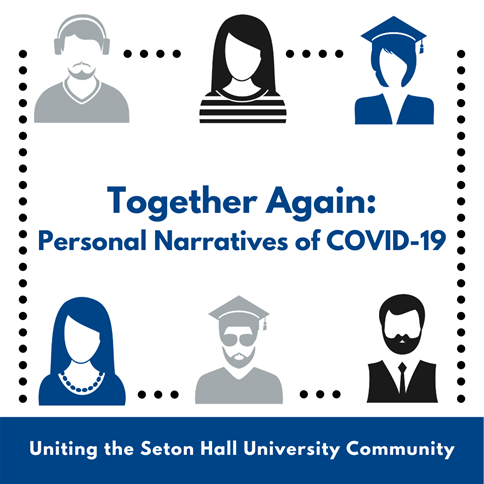
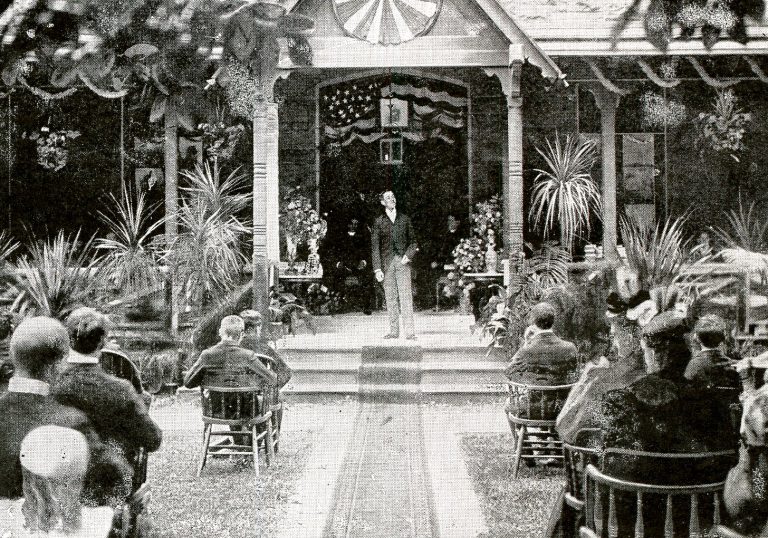
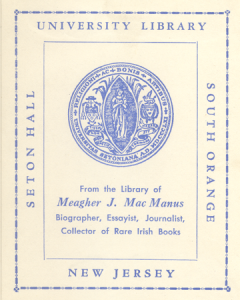 The Archives & Special Collections Center at Seton Hall University features a group of printed volumes from the collection of Irish literary figure and noted book collector Michael Joseph (Meagher) MacManus (1888-1951) who wrote various nationalist-themed books and worked as editor of the Irish Press from 1931 until his death two decades later. This library includes over 3,000 titles dating from the seventeenth century to the present day and covers several different aspects of Irish and Irish-American life including culture, geography, literature, politics, biography, history and religion. Nearly all editions are printed in either English or Irish (Gaelach). The core of this collection consists of acquisitions secured by MacManus during his lifetime, but arrangements have been made to add latter day works to what has become a continuously expanding bibliography.
The Archives & Special Collections Center at Seton Hall University features a group of printed volumes from the collection of Irish literary figure and noted book collector Michael Joseph (Meagher) MacManus (1888-1951) who wrote various nationalist-themed books and worked as editor of the Irish Press from 1931 until his death two decades later. This library includes over 3,000 titles dating from the seventeenth century to the present day and covers several different aspects of Irish and Irish-American life including culture, geography, literature, politics, biography, history and religion. Nearly all editions are printed in either English or Irish (Gaelach). The core of this collection consists of acquisitions secured by MacManus during his lifetime, but arrangements have been made to add latter day works to what has become a continuously expanding bibliography.